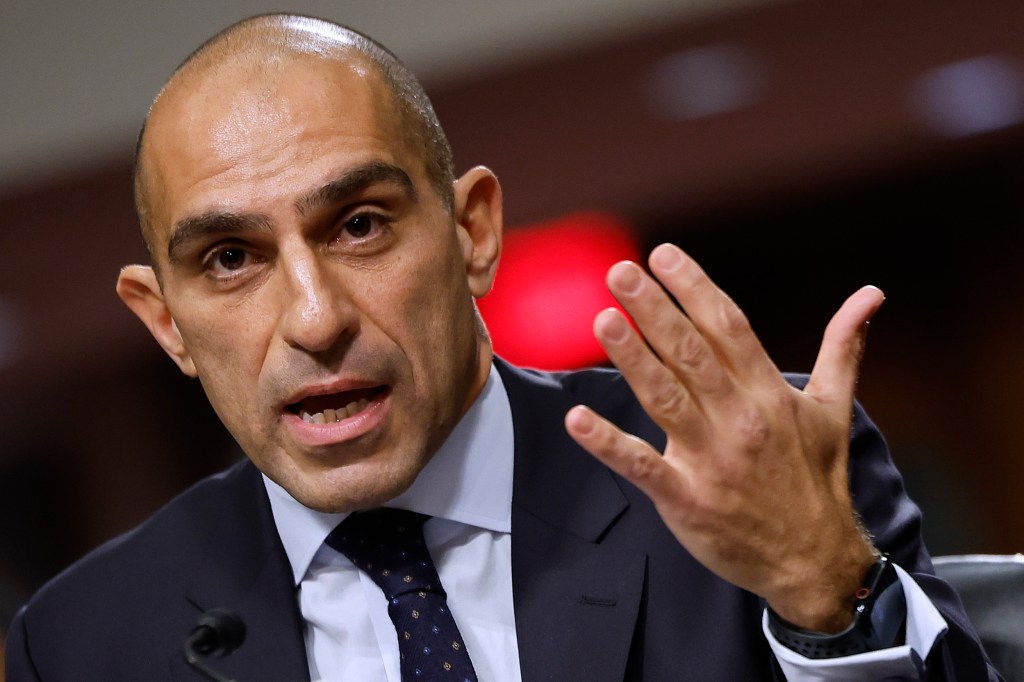Rostin Behnam, Chair of the Commodity Futures Trading Commission (CFTC), was asked how he saw the regulatory framework changing. He said that the CFTC is a principles-based regulator, which means it can adapt to an imperfect system.
Digital assets are top of mind especially in regards to blockchain and tokenization. Congress needs to weigh in on these and he hopes that there might be something by year end. But it would not surprise him if this took longer. He felt digital assets need to be regulated more definitively – right now it is very hard to enforce in a market where you don’t regulate. This creates uncertainty for everyone.
Behnam was then questioned on the recent action in relation to betting markets, specifically on the upcoming election. He explained some of the history and the binary options contracts for agriculture that were event-based, and said the Commission had been entirely consistent in banning this event market on political elections but had lost the lawsuit on appeal.
He commented that this put the CFTC in a tough place as it has therefore become ‘an election cop’ and needs to evaluate what might be fraud or manipulation in this sphere for someone’s benefit. He stressed this is another area where Congress needs to weigh in. The CFTC will appeal again but for now this market is live and active.
Inevitably he was queried on the use of AI. He values its contribution in data reporting and surveillance. He spoke of incidents such as Ion, ICBC and CrowdStrike where it had helped to mitigate damage and said that it would help to identify future cyber attacks and enable data governance.
A clear benefit was the ability to discover these outages so much faster than previously. He said in terms of regulating AI, he was keen for the CFTC to walk before it can run. There had been a request for comment a year ago to understand how to encourage use/benefit while mitigating risk. He finds principles of value here when it comes to regulation of technology – prescription tends to be too inflexible. He sees a net benefit in use of AI despite its capacity to aid manipulation.
The recent action in relation to betting markets has put the CFTC in a tough place as it has become ‘an election cop’ and needs to evaluate what might be fraud or manipulation in this sphere.
The discussion turned to operational resiliency. SIFMA has concerns that a new rule proposed for FCMs and swap dealers that covers third-party risk management, business continuity and cyber security might duplicate existing regulation and obligations.
Chair Behnam wanted to make clear that this new proposal is going to be designed to catch those that are not already prudentially regulated (and therefore not required to comply with other equivalent rules). The focus is on ensuring that there is no conflict or duplication. It should just create authority over a non-bank space.
Treasury clearing was much debated at this SIFMA event and it got more airtime in this session with special attention to cross-margin compliance, and any new players in this area. The respective roles the SEC and CFTC play for dually registered entities will be important to clarify. In addition, the clearing models need to be decided (sponsored access as opposed to client clearing. The netting potential of this reform reduces risk and helps resilience so the benefits are obvious.
He was asked if the amendments to Regulation 1.25 are ready. He said they are pretty close here and it will mean an extension for FCMs and clearing houses with respect to what qualifies as a permissible investment beyond cash and treasurys. DCOs and G7 sovereign debt will become permissible if plans go through.
These reforms are putting in place a broad principle of market reform after Dodd Frank to extend permissible investment to the G-SIVs and recognize high-quality liquid investments. This helps and encourages new FCMs setting up and going on to thrive.
The final point was on carbon and climate change markets. There was a guidance a month ago but the Commission does not have direct jurisdiction here despite its authority over carbon credits. Guidance is the limit right now. Once these contracts are listed, trust and security is required in what is currently a regulatory vacuum.
Behnam does not foresee a major legal change, but for now there is zero tolerance for fraud or manipulation and a recent enforcement action on this underlines the statement.













